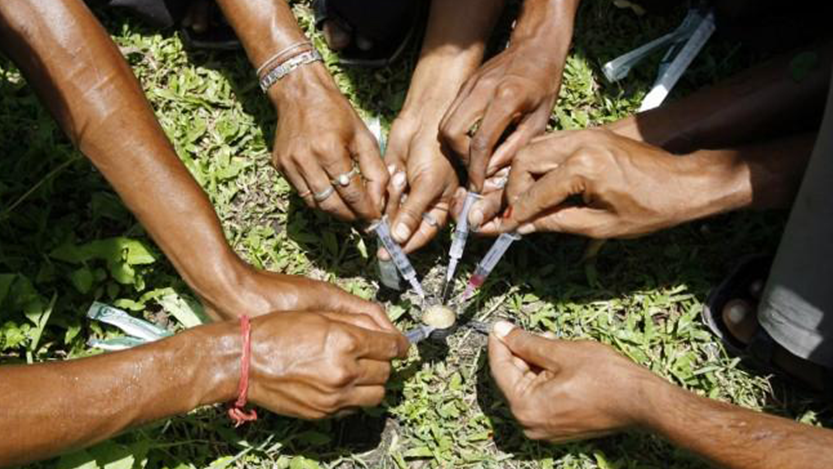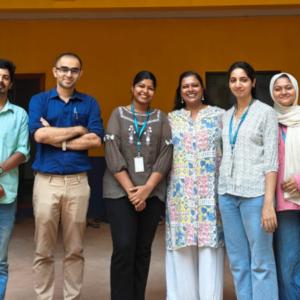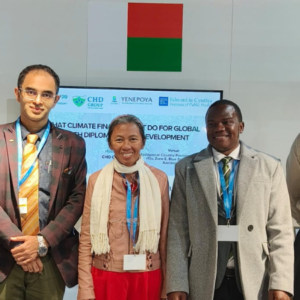Drug abuse is the use of substances regularly in amounts which can cause severe harm to the body and psychology. It involves the consumption of drugs acquired in illegal ways. Drug use or drug abuse has become an alarming concern in today’s world. All parts of the society, be it developing or under developing states are facing the issue of drug use among its people. It can cause serious and hazardous issue to an individual’s health. According to UN World Drug Report 2023, the number of people who suffer from drug use disorders, has gone up to 39.5 million, a 45 per cent increase over 10 years.
India is also among the countries with a good number of the population addicted to drugs. According to the Global Drug Policy Index 2021, India ranked 18th out of 30 countries. The age group which are highly affected by drug use are from 16 to 26 years of age. In the North East part of India lies a state called Nagaland where the use of drugs has been increasing over the past years. It is a land filled with rich scenic views and diverse culture, unfortunately is also a home to many drug users. Due to its close proximity to the infamous golden triangle (Myanmar, Laos and Thailand) which produces about 80% 0f the world’s heroin and other illicit drugs, drug menace has become a menace of gigantic proportions.
There is no doubt that Nagaland has had its fair share in the history of drug use. But its intake and usage has been on the rise like never before. As per the Ministry of Social Justice and Empowerment’s report on the ‘Magnitude of Substance Use in India 2019;’ in Nagaland, 4.7% and 6.5% of the surveyed population were users of cannabis and opioids respectively. According to a data provided in the year 2020, there were 4.6% cannabis users which was higher than the national average of 2.8%. The state also surpassed the national average of 1.1% sedative users with 9.8% and 25.2% of opioid users with 3.1% dependency and 6.5% disorders, as against the national average of 2.1%.
The age groups which are most affected are from 18-50 years. Opioid was and still is very popular among the people but the use of the so called “sunflower” has been steadily increasing. Opioids like brown sugar and SF (sunflower) powder once taken will give you such an intense kick that it will send the user into a euphoric state which lasts for several hours. However, once the drug wears off, the person experiences drowsiness, mood swings, apathy, slow motor movement and brain fog. Also, long term use of this drug causes psychotic and maniac behaviors. It also causes anxiety and depression. Prolonged use of this drug will cause serious health issue such as kidney problem, TB, drug induced hepatitis, HIV, Hepatitis B and C. Because SF is priced at such an affordable range, it has become the go to product among the drug users. It is also popular among school going children. This drug has attracted kids as young as 10 or in some cases even below 10 years of age. According to a national level survey report published in 2019, there are 6,24,000 substance users in Nagaland in which 1,11,000 users are children and 26000 users are female. The DGP of Nagaland during the International Day against Drug Abuse and Illicit Trafficking that was held on 26th June 2023 in Kohima, Nagaland said that there are around 30,000 opioid users in the state and 550rs crore is spent daily which is not a small amount considering the state’s economy. Nagaland is not a producer of drugs but it serves as a route for trafficking drugs from Myanmar through Manipur and it is a major consumption center. Drugs such as morphine, opium and brown sugar are smuggled into Nagaland with Dimapur serving as the main transit hub.
It has been observed that a lot of the drug users are from broken homes, some are kids who ran away from their homes, some of them became hooked on drugs due to mental stress while there are some who tried due to peer pressure or out of curiosity. Even people with white collared jobs are no exception to drug use. At least 7 police personnel were dismissed due to their involvement in drug use. This was accomplished through the initiative of Nagaland state police crackdown on drug peddling and its abuse.
Decent progress has been made along with co-operation and help from members of public, both individuals and organizations in sharing information about drug peddlers and users. ‘Operation Good Samaritan’ was launched in Kiphire in the District of Nagaland. It is a mass campaign against drug abuse by involving community participation. This is the first of a kind initiative in the entire country having police-public collaboration to go for door to door campaign against drug abuse under the concept of ‘Nasha Mukth Bharat Abhiyan’. The Nagaland police will be launching an app where the people can report or give information on the sale and consumption of drugs. The Department of Social Welfare is also planning to open a de-addiction centers for females and young boys. The Ministry of Social Justice & Empowerment also aims to open de-addiction centers in all the gap districts for which committed NGOs are required to apply through e-Anudaan. Under the Nasha Mukt Bharat campaign in Nagaland, Kohima, Dimapur, Mon, Phek, Tuensang, and Mokokchung are covered and various activities are being carried out focusing on primary prevention and demand reduction. The DGP of Nagaland also urged the public to treat drug users as patients and not criminals.
In order to reduce the burden of drug menace, the state should take more measures and initiatives such as spreading awareness about the dangers and harmful effects of drug abuse especially among the youths, implementing drug prevention programs in schools and providing medication assisted treatment to those suffering from drug addiction. Counseling should also be provided to these people. Community outreach programs should also be initiated in order to reduce such menace in the society.
About the Author: Yulena Tsanglao is pursuing Masters of Public Health (MPH)
Disclaimer: Views expressed are the author’s own. Edward & Cynthia Institute of Public Health or Yenepoya (Deemed to be University) are not responsible for contents or opinions reflected in this article.




